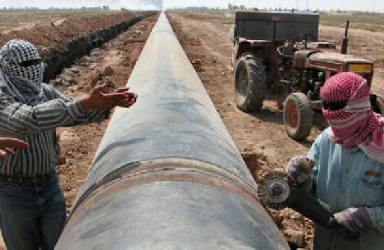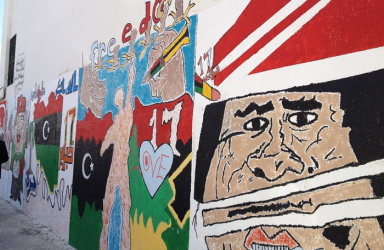A “Major Terrorist Event” Case Study: Benghazi, Libya on September 11, 2012
The Benghazi attacks ultimately assisted in the ongoing destabilisation of post-Gaddafi Libya, and advanced multiple extremist Islamist causes.
Evolving Norms: How the Libyan & Syrian Conflicts Have Affected the R2P
Though the Responsibility to Protect (R2P) norm suffered a setback in the wake of the Syria crisis, the 2011 Libyan intervention offers hope & guidance for its evolution.
Why is the Discourse of ‘Islamic Terrorism’ Problematic?
The prescribed causal relationship between religion and violence is not only contestable but also alarmingly reductionist.
Hassan al-Banna: A Starting Point for Contemporary Islamic Fundamentalism
Al-Banna’s ideas of Islam’s superiority, of his conception of Islam to others, and the monopoly of the absolute truth are the first steps to judge Others as unbelievers.
Hamas and the Women’s Movement: Islamism and Feminism Under Occupation
Hamas’ takeover of Gaza marked a shift in the complex process of preparation for national sovereignty, especially for the Palestinian women’s movement.
Intervention, Rectificatory Justice and Immigration: France and Ben Ali
Looking at the example of France and Tunisia, past interference in the political and social life of a country should be considered as a criteria of assessing immigration.
Snake Oil: US Foreign Policy, Afghanistan, and the Cold War
Afghanistan has become a “snake country”: where loyalty can only be rented, solutions are always temporary, and the law of the stronger prevails.
How the Structure of Syrian Insurgent Groups Restrains Greater American Support
The typology of Syrian rebel groups illuminates the obstacles to cooperative action, but also highlights the difficulties that might dominate the post-war Syrian state.
Jihadi State-Building: A Comparative Study of Jihadis’ Capacity for Governance
An evaluation of the abilities of ISIS, the Afghan Taliban prior to their ousting in 2001 and Boko Haram to engage in state-building – and what forms are ‘successful’.
Quick to the Rescue: Humanitarian Intervention in Libya
The decision-making process that guided resolution 1973 was based on national interests, realpolitik calculations, geo-strategic considerations, and domestic politics.













